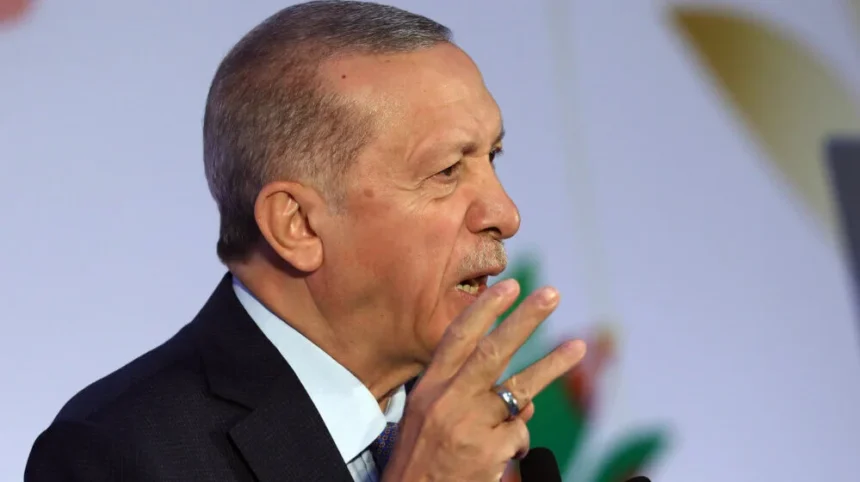Turkish President Recep Tayyip Erdogan announced today that he has appointed a team of legal experts to begin drafting a new constitution, a move that critics fear could allow him to remain in power beyond the end of his current term in 2028.
Erdogan, who has led Turkey since March 2003, argues that a new constitution is needed because the current one—written after the 1980 military coup—is outdated and still reflects military influence, despite having been amended several times.
“Yesterday I appointed 10 legal experts to begin the work, and with this, we will continue our preparations for a new constitution. Over the past 23 years, we have repeatedly demonstrated our sincere intention to crown our democracy with a new civil and libertarian constitution,” Erdogan told local officials from his Justice and Development Party (AKP).
Under Turkey’s existing constitution, Erdogan cannot run again for president unless early elections are called or legal changes are made. Critics see the push for a new constitution as a possible route to remove the term limit and enable his re-election.
Erdogan, who has become increasingly authoritarian over the years, denies any personal motive behind the constitutional reform.
“We don’t want a new constitution for ourselves, but for our country,” Erdogan said last week.
The ruling AKP and its nationalist allies currently lack the parliamentary votes needed to pass a new constitution on their own. Some analysts believe recent efforts by the government to resolve the decades-long conflict with the Kurdistan Workers’ Party (PKK) may be part of a broader strategy to gain the support of the pro-Kurdish Peoples’ Democratic Party (HDP) in parliament.
Erdogan’s renewed push for a new constitution comes at a time when his main rival, Istanbul Mayor Ekrem Imamoglu, is imprisoned on corruption charges.
Imamoglu’s arrest on March 19 is widely seen as politically motivated, although the government insists that the Turkish judiciary is independent. The move sparked mass protests calling for Imamoglu’s release and an end to Turkey’s democratic backsliding under Erdogan.







